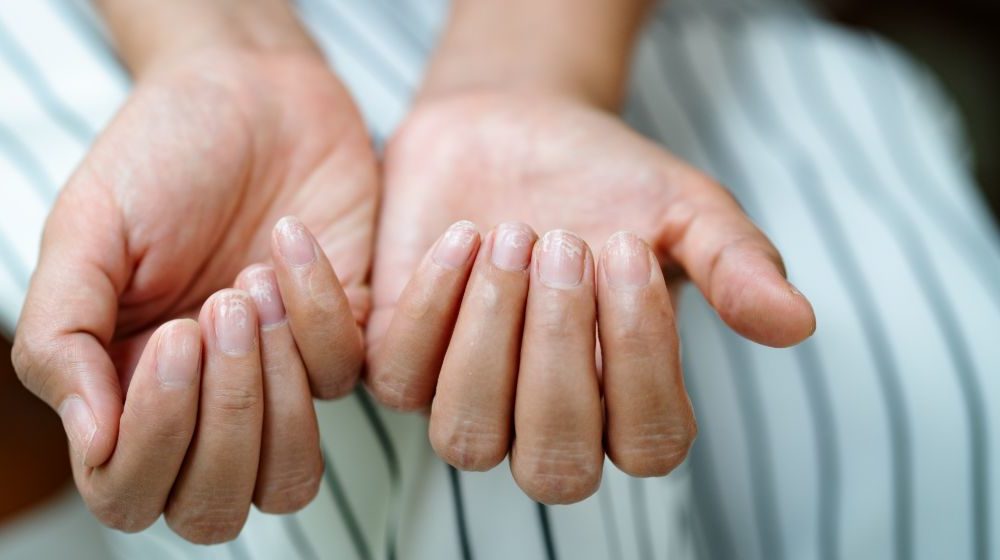Nail Problems Due To Vitamin Deficiency
You might not notice it, but your nails actually tell a lot of stories about your body's health. Their condition, whether good or bad, might signal that you are lacking certain vitamins and minerals in your body.
Take better care of your body and watch out for some of the most common nail problems due to vitamin deficiency.
RELATED: Best Vitamins To Keep A Full, Healthy Head Of Hair
7 Common Nail Problems Due to Vitamin Deficiency and How To Fix Them
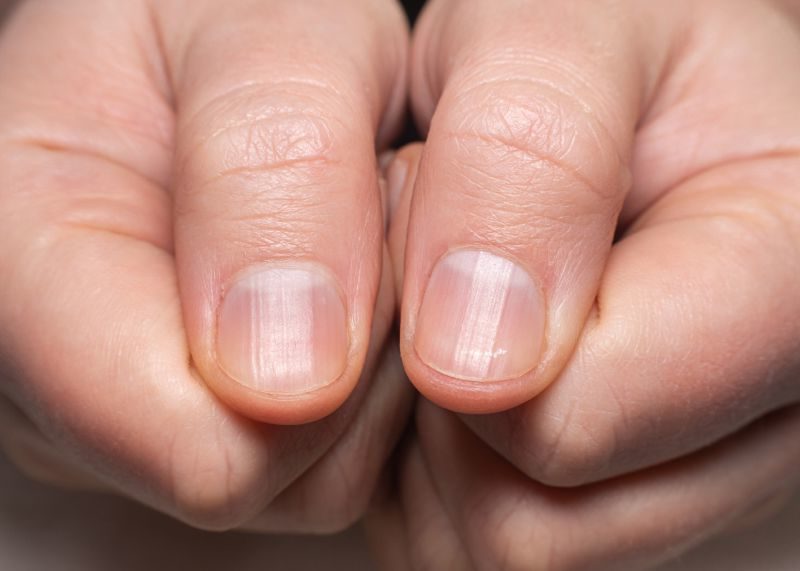
1. Brittle Nails
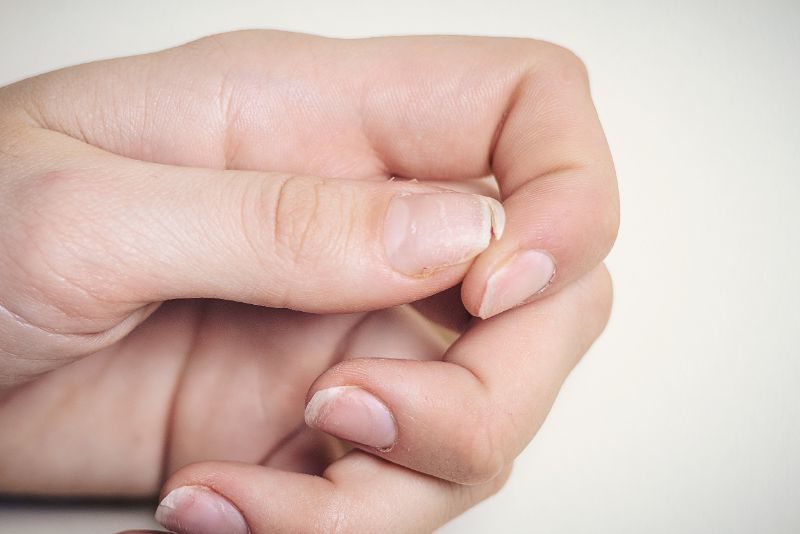
Nails that crack easily and are either rough or splitting are some of the most commonly reported nail problems out there. Officially referred to as onychoschizia, this condition is seen more often among women. Fortunately, it is easily treatable with just a few simple tricks.
Brittle nails are often caused by the repeated wetting and drying of one's nails. Other conditions such as iron deficiency and hypothyroidism may also cause this condition.
The solution: When engaging in activities that will get your hands wet such as doing the laundry or washing the dishes, make sure to put on a pair of gloves. Applying lotion with lanolin or alpha-hydroxy acids could also help keep it moisturized and prevent it from breaking easily.
2. Peeling Nails
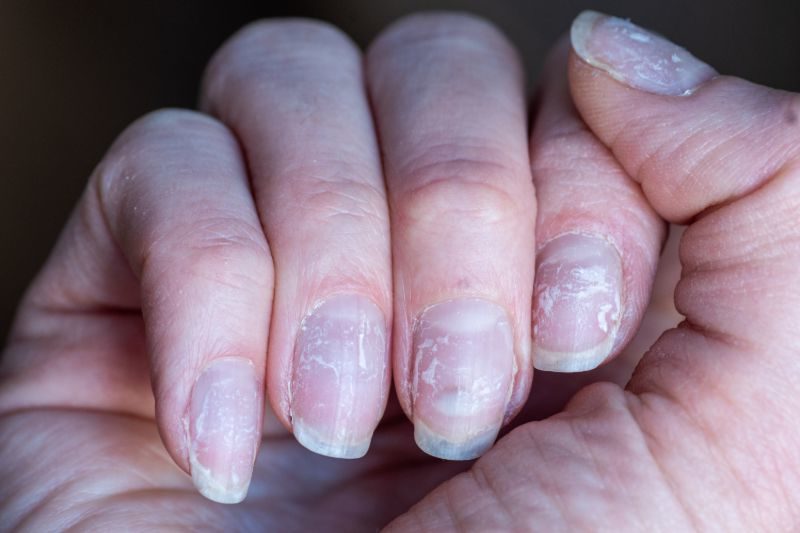
Similar to brittle nails, peeling nails is also caused mainly by iron deficiency. Using your nails as a tool or pressing too firmly into them when cleaning them may lead to external trauma. These, in turn, cause the nails to start peeling.
If you're not sure whether the cause is internal or external, check your toenails. If they are also peeling, the cause is most likely internal. Otherwise, you might simply need to be more careful with your nails.
The solution: Peeling nails caused by iron deficiency are easily solved by adding iron-rich foods to your diet. Examples of this include red meat, baked potato skins, fortified cereal, and lentils. Taking biotin may also help.
If a trauma or other external factors are causing your nails to peel, taking precautions is the easy answer. Make sure to keep your nails moisturized with lotion and wear protective gloves when doing activities that may damage them.
3. Weak or Soft Nails
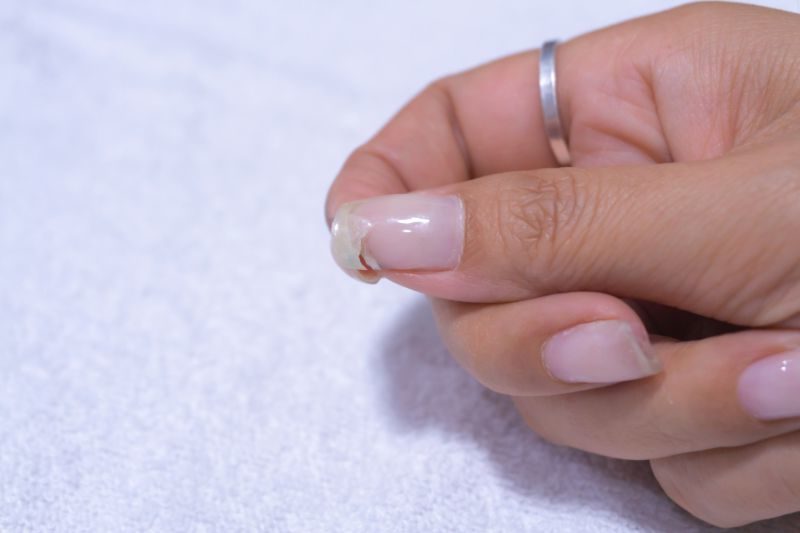
Weak or soft nails are one of the most common nail problems due to vitamin deficiency. These nails typically bend or break easily.
In most cases, deficiency in essential vitamins and minerals such as B vitamins, iron, calcium, and fatty acids is the primary cause of the problem.
Overexposure to moisture and chemicals are possible cause why the nails to become soft or weak. These chemicals are often found in products like detergents, nail treatments, cleaning fluids, and the like.
The solution: Unless you are sure that you are deficient in iron, taking it as a supplement is not necessary. Instead, start drinking multivitamins that include B vitamins and calcium to strengthen your nails.
You should also avoid having chemical products around your nails. Go natural every once in a while and give your nails some time to recover.
4. Ridges on Nails
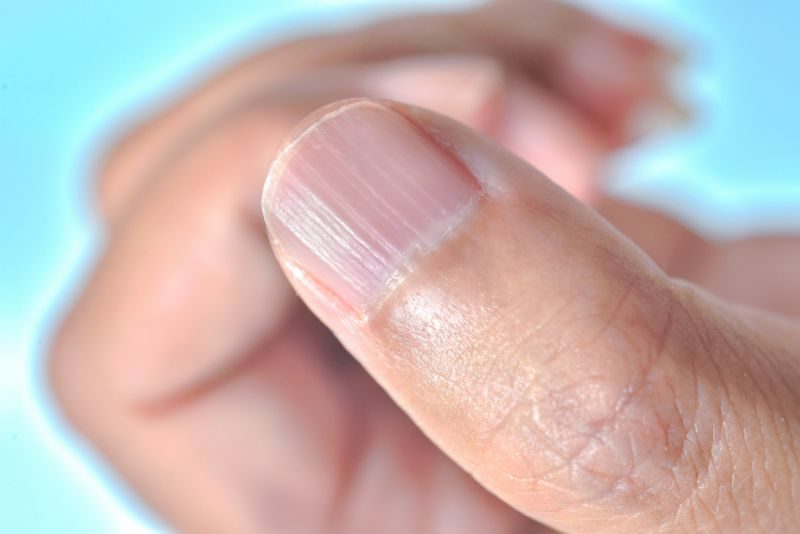
Ridges that look like vertical or horizontal waves on the fingernails are also signals that something is wrong with the body.
In general, vertical ridges appear in most people's nails later in life. They typically run from the cuticle to the tip of the fingernail. As long as these are not accompanied by symptoms such as changes in the nails' color, the condition is pretty much benign.
Horizontal ridges, on the other hand, may signal something worse. These ridges are typically called Beau's lines and maybe a sign of underlying kidney disease. The condition might actually cause nail growth to stop altogether until the problem is treated.
The solution: Vertical ridges, again, are typically considered benign. However, they could also be a symptom of iron deficiency anemia. Taking iron supplements and eating iron-rich foods are some easy solutions to this issue.
Horizontal ridges, however, may be more serious. If you see these on your fingernails, it is best to consult with your physician for a solution.
RELATED: Kidney Detox | 7 Natural Ways To Detox And Cleanse Your Kidneys Naturally
5. Yellow Nails
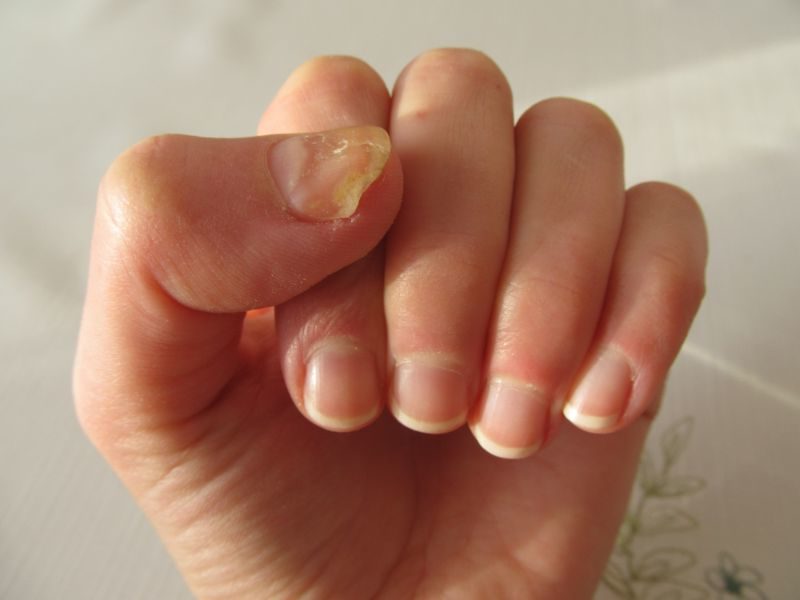
Yellow nails are one of the most common nail problems due to vitamin deficiency. However, other factors such as infection or reaction to products like nail polish may also contribute to the problem.
The solution: Natural treatments like the application of tea tree oil or taking vitamin E may help deal with infections in the fingernails. These should take care of the problem and ensure that your nails start growing clear again.
Taking multivitamins to supplement your daily needs may also help get rid of yellow nails. If the problem persists after all these, however, then it may be time to consult a doctor.
6. Missing Half-Moons on Nails
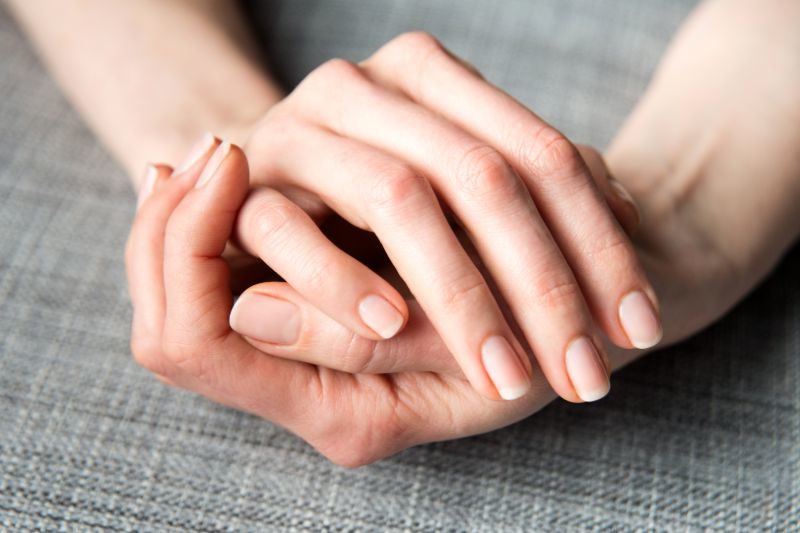
Look closely at the base of your fingernails and you should spot some little rounded white curves. These are called fingernail moons from the Latin term lunula. However, not everyone has them.
If you have not had them ever since, then there is no cause for worry. They may simply be hidden under the skin. If you did have them, however, and they disappeared, it may be a sign of depression, malnutrition, or anemia.
If they start turning
The solution: If you are sure that you used to have fingernail moons and they disappeared, it may be time to see a physician.
If your fingernail moons start turning red and you begin experiencing symptoms such as dizziness, lightheadedness, anxiety, weight gain or weight loss, and unusual cravings, then the need to see your doctor is only more urgent.
7. White Spots
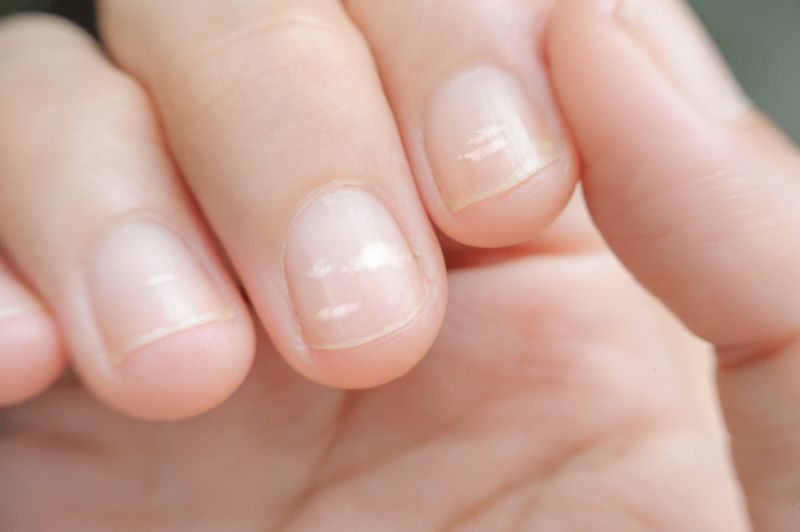
Scattered white spots on a person's fingernails typically start appearing during his or her middle school age. Often, these signify a deficiency in zinc in the person's body.
Other possible causes of white spots on the fingernails are allergic reactions, injuries to the nail, and fungal infections.
The solution: If zinc deficiency is the cause of the white spots, then 30 milligrams of zinc every day for the next three months is the easy fix.
Allergic reactions or fungal infections may need medication depending on the actual cause. On the other hand, injuries to the nail, if minor, may simply heal on their own.
Now that you know about the most common nail problems due to vitamin deficiency, learn about the other ways your body tells you that it needs more vitamins with this video courtesy of Kayla Chandler:
Having nail problems due to vitamin deficiency is only one of the many ways the body tells you that it needs something. Learn to listen to your body and know what to watch out for so you can take better care of yourself and your overall well-being.
Are there other nail problems due to vitamin deficiency that you know of? Share them with us in the comments section below!
Up Next:
- Why Good Nutrition And Physical Fitness Is Vital To Good Health
- Low Iodine Symptoms | Iodine Deficiency Symptoms
- What Is Selenium? | 7 Amazing Selenium Benefits
Please stay connected with us on Facebook, Pinterest, Instagram, and Twitter. Join our community here and Feel Better, Look Better and Live better with us.
Trending
Get Updates
SIGN UP FOR OUR NEWSLETTER TODAY
